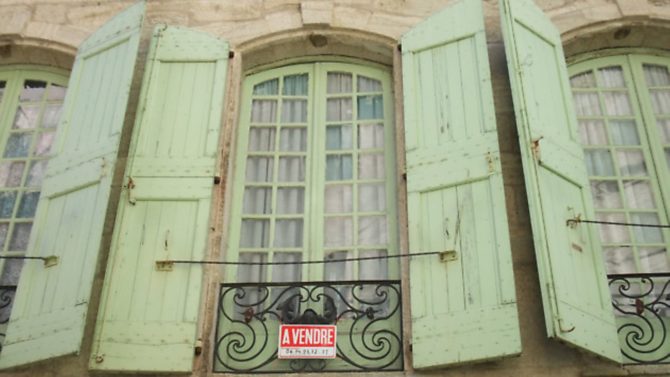8 ways to find a French property


Once you’ve decided to buy a French property, what options do you have for finding it? Karen Tait has some suggestions
When French Property News launched over 25 years ago, if you wanted to buy a French property, you either had to visit estate agencies in France or had a limited number of UK-based agents you could write to or speak to on the phone, who you could only find within the pages of specialist publications like FPN. How things have changed! There have never been more ways to find a home in France, but as anyone who has ever searched for a holiday or gift online knows, too much choice can sometimes be worse than not enough! I believe the trick is to combine the various methods covered here in a way that suits you best. For instance, the internet is a quick and easy way to gather information and browse properties for sale, but there is no replacement for actually visiting France to narrow down your location or talking to property professionals face to face.
Go online
Of course, the biggest change to the way we’ve searched for property over the last couple of decades has been the advent of the wonderful world wide web. You now have at your fingertips a choice of property portals with thousands of listings as well as agency sites, not to mention a wealth of information on everything from the buying process and average regional house prices to weather patterns and tourist boards’ coverage of local attractions. There are no excuses for not doing your homework now! Many property sites also offer newsletters which you can sign up to for regular updates or property alerts, and there are also handy apps such as our own France Property Shop app which enable you to search for property on the move. While there’s loads of useful information online, anyone can add to it so it’s important to ensure that the websites you use are credible and that the information they contain is accurate. Sometimes though, it’s the very fact that the information isn’t from a professional source that makes it appealing. I’m talking about blogs, forums and social media like Facebook and Twitter, where people who are in the same situation as you, or who have already bought a property in France, can share ideas and advice.
Read up on the process
With the advent of the internet, you might think that there’s no need for print publications nowadays but many people still prefer to sit in their favourite comfy chair and lose themselves in a magazine. With FPN, for example, we aim to provide readers with a mix of essential expert advice, inspiring real life stories and the latest property market news, all wrapped up in a handy monthly package! In addition to the articles, the adverts can put you in touch with the people you will need on the road to property ownership, from agents to solicitors, builders to tax advisors, and mortgage brokers to surveyors. You may even spot your future home in one of the adverts. There are also plenty of books available to guide you through the buying process, as well as tomes on renovation, investment, and the vocabulary and phrases you’ll need. Of course, if your French is up to it you can also look for a property in local French newspapers as well as national property catalogues. In addition to understanding French, you will need to understand the terminology, which differs from the way we list properties in the UK. Where a property is described as a T4, for example, this means it has four main rooms (excluding the kitchen and bathroom), which could be a living room, dining room and two bedrooms or a living room and three bedrooms, for instance.
Visit exhibitions
So, you’ve looked online, you’ve read the magazines and books, and you want to take it a step further before you head out to France on actual viewings. French property exhibitions are an ideal way to meet agents, solicitors and financial advisors face to face and all under one roof, as well as associated services such as removals and builders. They also often include seminars on the buying process. If you’re reading this as soon as it hits the shelves you’ll still have time to visit The France Show, which hosts the UK’s largest property exhibition on 23-25 January at London Olympia. If not, look out for one of the regional exhibitions held throughout the year.
Get in touch with agents
While agents in France are mandated by the vendor, so technically work for them, they are also able to offer a lot of advice to buyers, including general information on the local area and property market as well as the buying process. Although fewer details tend to be made available about individual properties – for example, you are unlikely to be told the address, and agents tend to accompany you on viewings – the French system works more on the basis of the agent understanding your requirements and then selecting properties to meet your needs and wishes. Many agents who specialise in selling to Brits (whether British themselves or French) will also help you beyond the actual sale, assisting with translation or setting up bank accounts or finding builders, for example. As I covered on page 26, the French system is very well regulated; agents are required to hold a carte professionnelle, which proves they are professionally qualified. It is always advisable to make contact with agents before you head out to France, rather than just calling in on them. If you do the latter, you run the risk of being unable to view any properties you’ve shortlisted, as the agents need to liaise with vendors and accompany you on viewings. In addition to agents on the ground in France, there are UK-based agents who work with their French counterparts, sharing the fees where relevant. Note that vendors may exclusively mandate one agent to sell their property, or they may have their property on the market with several different agents, in which case it could be advertised at different prices, due to varying valuations and agency fees.
Try a property finder
In recent years property finders or search agents have become increasingly popular, especially for people who don’t have time to visit France looking for a property. In France they too are required to hold a carte professionnelle but where they differ from agents is, of course, that they work purely on behalf of the buyer. They will source and visit properties for you, and negotiate the price on your behalf; a good property finder should ideally be able to negate their fee by getting a good price for you on the property.
Don’t forget notaires
You can also buy properties through a notaire, which may seem confusing if you think of them just as a legal professional. While the primary role of a notaire in a property transaction is to handle the conveyancing and collect any property taxes due on the purchase (they are actually government employees), they are also allowed to sell property and may have a ‘shop window’ displaying their properties, although they are not allowed to advertise. Notaires acting as selling agents tend to be more common in rural areas.
Consider private sales
It is said that some 50% of property transactions are made in France via private sales, although British buyers tend to prefer the security blanket that using an agent or property finder offers. While buying privately avoids the need to pay agency fees, we would only recommend this route if you have good French language skills and a thorough understanding of the process, or alternatively the assistance of a solicitor or additional advisor to help you through the various stages of the transaction.
Auctions
Finally, you could take inspiration from TV’s Homes under the Hammer and buy a property at a French auction. Read more about auctions here
Read our other buying guides on:
Mortgages and currency contracts
What and where: 6 things to consider
Completion and the acte de vente
Share to: Facebook Twitter LinkedIn Email


